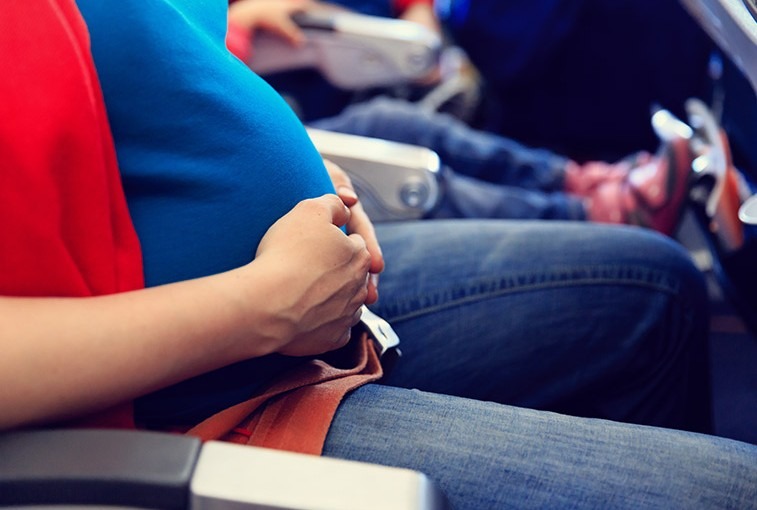Although traveling during pregnancy is normal and a lot of women do it, it is important to consider potential problems that could arise during travel.
Pregnant women should also weigh the availability of quality medical care in the countries they are visiting before traveling abroad. Getting all of the needed immunizations before becoming pregnant is preferred over vaccines during pregnancy.
When is the safest time for a pregnant woman to travel?
Traveling in early pregnancy, up to 32-34 weeks is safe. Traveling after 34 weeks depends on your route, the distance and availability of obstetric medical care.
Free downloads: Pregnancy guidebooks by trimester
Should expectant mothers see their doctor before traveling?
Typically, women with uncomplicated pregnancies do not need to be seen. Women with high-risk conditions, early signs/concerns for labor, and women in late pregnancy should be seen prior to traveling.
Should pregnant women avoid traveling to any specific areas (high altitude, international, etc.)?
Prolonged exposure to new high altitude is not recommended. A pregnant woman should not travel to areas with health advisories, such as Zika virus and malaria warnings.
They’ll also want to check on the availability of safe food and beverages, including bottled water and pasteurized milk, in their destinations.
What are some tips for driving during pregnancy?
A pregnant woman who is traveling should make frequent stops, be sure to take time to walk and move around and use compression stockings. She may also want to consider getting of a note of medical clearance. These are recommended depending on the woman’s type of travel.
When traveling by car, be sure to wear your seat belt correctly. Studies have found the best way to protect you and your baby is to:
- Move your seat back as far as possible, with at least 10 inches between your breastbone and the steering wheel or dashboard.
- Adjust the lap belt so that it is low, across your hips and below your belly.
- Place the shoulder belt across your chest between your breasts and away from your neck. You should never push the shoulder belt behind your back or under your arm.
- Always leave the air bag switch turned on. The air bag works with your seat belt for the maximum protection.
What about flying while pregnant?
Air travel is generally safe, but women with certain health conditions and those with a high-risk pregnancy may be advised not to fly. Many airlines advise that pregnant women not travel during the last few weeks of pregnancy.
Also, frequent fliers have some risk of increased radiation. Be sure to talk with your health care provider if you need to travel often by air. When you do fly, drink plenty of water to reduce the drying effects of airplane cabin air.
And as with car travel, wear your seat belt low across your hips while seated.
Learn more
- Pregnant or breastfeeding? CDC says to get COVID-19 vaccine
- Baby benefits when pregnant mom gets the flu shot
- Keeping both baby and mother safe during pregnancy
…
Posted In Health Information, Pregnancy, Women's
